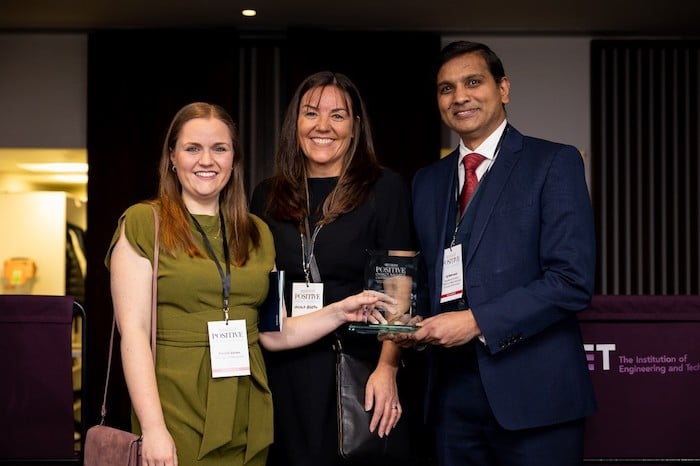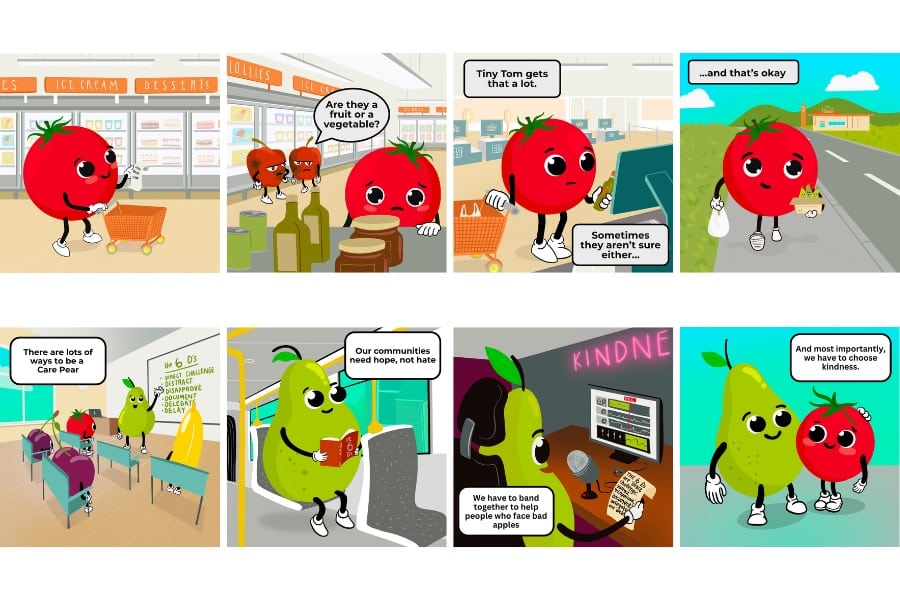Manchester team who developed test to save babies’ hearing win New Statesman Positive Impact in Healthcare Award
- Written by Thom Bamford
- Last updated 2 years ago
- Community, People

Using a cheek swab, the test can identify in 26 minutes whether a critically ill baby admitted to intensive care has a gene change that could result in permanent hearing loss if they are treated with a common emergency antibiotic, Gentamicin.
Another amazing Manchester developed invention.
The new test saw them scoop the New Statesman Positive Impact in Healthcare Award.
The antibiotic, gentamicin is roughly used to safely treat 100,000 babies a year – but – one in 500 babies carry the gene change that can lead to permanent hearing loss when given the antibiotic.
The new test means that babies found to have the genetic variant can be given an alternative antibiotic within the ‘golden hour’ and could save the hearing of 200 babies in England every year.
ALOH study lead, Professor Bill Newman, Consultant in Genomic Medicine at MFT and Professor of Translational Genomic Medicine at The University of Manchester, said: “I am delighted for the team to receive this recognition of their fantastic efforts and their innovative approach in bringing this test to fruition.”
The new swab test technique, which was piloted at Manchester Hospital, replaces a test that traditionally took several days and is the first use of a rapid point of care genetic test in acute neonatal care.
Dr Ajit Mahaveer, Consultant Neonatologist, Rachel James, Senior Research Coordinator and Nicola Booth, Research Nurse Manager on the Newborn Intensive Care Unit at Saint Mary’s Hospital, attended the awards ceremony in London and accepted the award on behalf of the team.
“I am incredibly proud to be part of the team who made this study a reality and to be recognised at this year’s New Statesman Positive Impact Awards. It’s an honour to accept the award on behalf of the team, knowing the work we have put into delivering this research will truly make a difference to hundreds of babies’ lives each year.
“As a doctor dealing daily with infection, my main concern was how easy and quickly the test was to conduct, as it’s important that we do not delay antibiotic treatment. Our experience of using this test has been very positive. It’s straight-forward, non-invasive and will have a huge impact on our patients’ lives.”
- This article was last updated 2 years ago.
- It was first published on 9 January 2023 and is subject to be updated from time to time. Please refresh or return to see the latest version.
Did we miss something? Let us know: [email protected]
Want to be the first to receive all the latest news stories, what’s on and events from the heart of Manchester? Sign up here.
Manchester is a successful city, but many people suffer. I Love Manchester helps raise awareness and funds to help improve the lives and prospects of people across Greater Manchester – and we can’t do it without your help. So please support us with what you can so we can continue to spread the love. Thank you in advance!
An email you’ll love. Subscribe to our newsletter to get the latest news stories delivered direct to your inbox.
Got a story worth sharing?
What’s the story? We are all ears when it comes to positive news and inspiring stories. You can send story ideas to [email protected]
While we can’t guarantee to publish everything, we will always consider any enquiry or idea that promotes:
- Independent new openings
- Human interest
- Not-for-profit organisations
- Community Interest Companies (CiCs) and projects
- Charities and charitable initiatives
- Affordability and offers saving people over 20%
For anything else, don’t hesitate to get in touch with us about advertorials (from £350+VAT) and advertising opportunities: [email protected]

The very special toy shop where parents don’t pay a penny is open – and busier than ever

Manchester’s oldest homelessness charity celebrates 40 years of supporting the needy

Games, science and history collide at Manchester’s Science and Industry Museum this winter

Best bars and pubs to watch the football and live sport in Manchester

How Baguley Hall Primary School is nourishing minds with a morning Magic Breakfast















